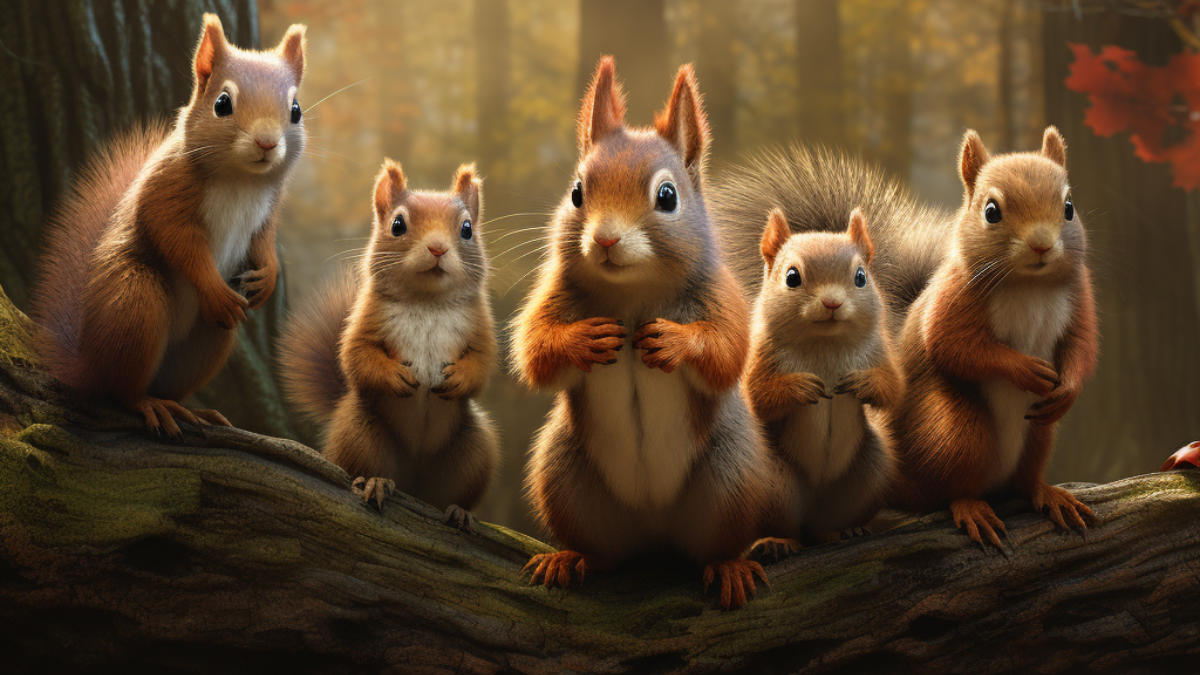Squirrels, with their bushy tails and playful antics, are a common sight in many backyards and parks. These adorable creatures have long captured the curiosity of nature enthusiasts and researchers alike. One peculiar aspect of squirrel behavior that often raises questions is their treatment of deceased squirrels. Do squirrels bury their dead, or is it just a myth? In this article, we’ll delve into the intriguing world of squirrel behavior to uncover the truth behind this age-old question.
Understanding Squirrel Behavior
Before we delve into the question at hand, it’s essential to understand the behavior of squirrels. Squirrels are small rodents belonging to the Sciuridae family. They are known for their exceptional climbing abilities, sharp senses, and keen intelligence. Squirrels are omnivores, and their diet includes nuts, seeds, fruits, insects, and occasionally small animals.
The Myth of Squirrel Burial Rites
The idea that squirrels bury their dead like some other animals, such as certain birds or elephants, has been perpetuated over the years. However, scientific research suggests otherwise. There is no evidence to support the notion that squirrels engage in burying their deceased peers.
What Happens to a Deceased Squirrel?
When a squirrel dies, its body is typically left where it falls. Squirrels are known to live in close-knit communities, and when one of their own passes away, the surviving members of the group may show signs of distress or curiosity. They may approach the deceased squirrel, sniff it, and observe it for a brief period.
In some cases, if the deceased squirrel was a nursing mother with babies, the surviving squirrels may take on the responsibility of caring for the orphaned young ones. However, this is not akin to burying the dead; rather, it’s a natural response to the loss of a community member.
The Circle of Life: Sustenance for Others
In nature, the concept of waste is minimal. When a squirrel dies, its body becomes a valuable source of sustenance for other creatures in the ecosystem. Scavengers such as raccoons, birds of prey, and insects feed on the remains, contributing to the delicate balance of the food chain.
Real-Life Observations: The Tale of the Curious Observer
Meet Sarah, a wildlife enthusiast who spent countless hours observing squirrels in her backyard. One day, Sarah noticed a lifeless squirrel lying near a tree. She was curious to see if other squirrels would come and “bury” the deceased individual. Over several days of observation, Sarah witnessed how other squirrels approached the body, examined it, and eventually moved on with their daily activities.
While no burial took place, Sarah was fascinated by the behavior of the squirrels and how they seemed to acknowledge the presence of their deceased comrade. This observation reinforced the understanding that squirrels, like many animals, exhibit complex behaviors that we are still uncovering.
In Conclusion: The Mysteries of Nature
As with many aspects of the natural world, squirrel behavior holds its mysteries. While the myth of squirrels burying their dead persists, scientific evidence suggests that this behavior is not a typical practice among squirrels. Instead, their response to a deceased member varies from observation to occasionally caring for orphaned young ones.
The lives of squirrels are filled with curiosity, intelligence, and survival instincts. Understanding their behavior enriches our appreciation for these furry creatures that share our urban and natural environments. So, the next time you spot a squirrel in your backyard, take a moment to marvel at their ingenuity and their place in the circle of life – even in death, they contribute to the web of life that sustains our diverse ecosystem.



